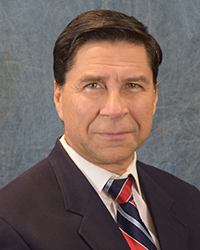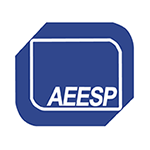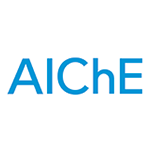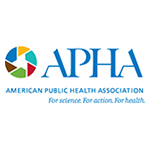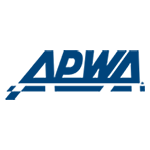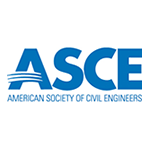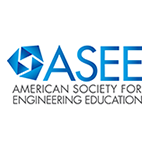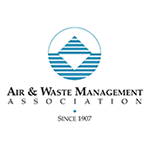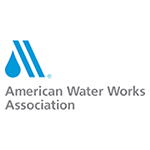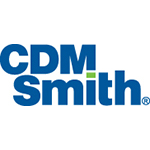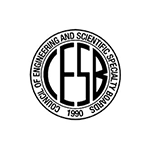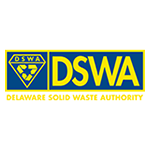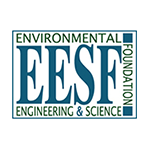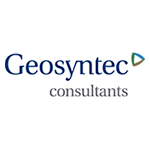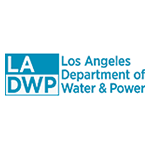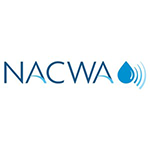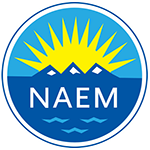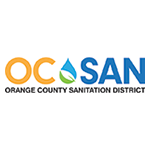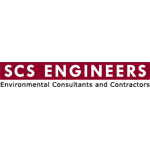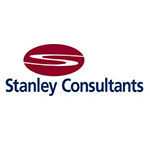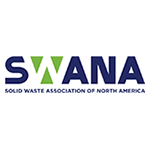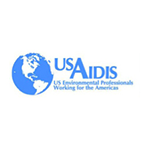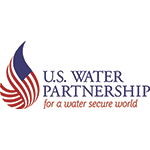AAEES Kappe Lecturer
2025 Kappe Lecturer
Vinio Floris, PhD, PE, BCEE, CSP
Director of Health, Safety, Environment and Quality
AXIOS Industrial Group
Education
- MBA, Finance, Texas A&M University, 2007
- MPA, Economics and Environmental Management, Harvard University, 1996
- PhD, Civil-Environmental Engineering, Water Resources Planning and Management, Colorado State University, 1989
- MS, Civil-Environmental Engineering, Water Resources Systems Analysis, Colorado State University, 1986
- BS, Agricultural Engineering, Water and Land Resources Management, Suma cum laude, National Agricultural University – La Molina, Lima, Peru, 1981
Selected Honors
- Kappe Lecturer, American Academy of Environmental Engineers and Scientists (AAEES), 2025
- Outstanding Academic Partner Award, Colorado State University, 2019
- ConAgra Agribusiness Award, Harvard Business School, Cambridge, Massachusetts, 1996
- Environmental Engineering Fellow, American Association for the Advancement of Science (AAAS). Research completed at the Office of Water, Environmental Protection Agency (EPA), 1995
Professional Licenses/Certifications
- Registered Professional Engineer, State of Texas
- Board Certified Environmental Engineer, American Academy of Environmental Engineers and Scientists
- ASP (Associate Safety Professional) and CSP (Certified Safety Professional), Board of Certified Safety Professionals
- Hazardous Waste Operations and Emergency Response (HAZWOPER) and advanced OSHA-training certifications
Volunteering
- Science and Engineering Fair of Houston, Environmental Engineering Coordinator and Lead Judge
- Harvard College interviewer in the Greater Houston area, Harvard University
- College Fair mentor for Houston, Harvard Club of Houston
- The Beacon Homeless Services, Houston, TX, Volunteer
Dr. Floris is an experienced environmental engineer in the sustainability, water resources, environmental management, and occupational health and safety fields. He has been an executive of several organizations managing their Environment, Health and Safety and Operations Excellence business units. He is currently the Director of Health, Safety, Environment and Quality at AXIOS Industrial Group in Houston, Texas. Previously, he has worked for Veolia, CEMEX, ERM, TETRA Technologies, the South Florida Water Management District, and the Port of Houston. In addition, he has been an international environmental and water management consultant for the Interamerican Development Bank, World Bank, International Finance Corporation, Andean Development Corporation, as well as USAID and other development agencies of donor countries.
Dr. Floris is a professor of sustainability at the SKEMA Graduate School in Lille, France, and at the GĚRENS Post Graduate School in Lima, Peru, and Colorado (in partnership with Colorado State University and the Colorado School of Mines). He is a proud long-term and active member of the American Academy of Environmental Engineers and Scientists, having been the Academy’s treasurer from 2020 to 2023. He is also an editorial board member of the Public Works Management & Policy Journal, which focuses on all aspects of the sustainable development of critical infrastructure systems.
Dr. Floris is a renowned international speaker, researcher, visionary, and prolific writer on the topics of water resources management, environment, sustainability, climate change, responsible mining and energy, and occupational safety, and has published extensively on those topics.
Abstracts of Lectures Offered
The Future of Sustainable Water Management – Innovation, Practices, and Opportunities for Environmental Science and Engineering
Water, the most precious resource on earth, is currently in true peril. Both quantity and quality of this most basic human need are being affected by its indiscriminate use, alarming level of contamination, a growing population, aging and/or inadequate infrastructure, and lack of funding. In addition, the severe impacts of climate change are seriously altering its availability and leaving significant uncertainties that strongly challenge its water security. Traditional strategies of problem mitigation and management solutions are simply not making progress, they are mostly ineffective and will eventually become obsolete. It is imperative that a new vision is cultivated to manage these sizeable challenges.
This presentation examines the current global water scenario under the SWOT (strengths, weaknesses, opportunities, and threats) analysis approach and focuses on the design and implementation of improved prospects for the short, medium, and long-term scenarios. It centers strongly on innovation and modern technologies available now, and others that will eventually mature (generative artificial intelligence, unmanned aerial vehicles, robotics and process automation, advanced remote sensing, etc.). The presentation will touch on appropriate and leading-edge infrastructure development and management, and innovative mechanisms in finance, all with the aim of mitigating and eventually solving these most severe challenges. In addition, a case study related to water management in responsible mining will be discussed, as mining (a key element in the energy transition) depends greatly on water resources.
The ultimate goal of this presentation is to motivate environmental engineers and scientists to think outside the box and use every available tool to tackle (and ultimately solve) global water management challenges.
Sustainability in the Supply Chain - The Role of Environmental Science and Engineering
The supply chain is the system that embodies all steps in getting a finished product or service to the final customer. It involves a sophisticated and active group of organizations, individuals, and resources, including producers, vendors, warehousing and distribution centers, transportation entities, wholesalers, retailers, and of course, the consumer. Considering its complexity and the many elements interacting globally, the supply chain can yield a considerable impact to the environmental footprint and cause huge negative externalities to societies. It is important to zoom out and look at the bigger picture, being mindful that one link in the supply chain can contribute significantly to gas emissions, impact water, waste, and the well-being of workers and communities.
This presentation has three sections. First, it identifies and examines the supply chain’s drivers and factors of markets and society expectations in terms of social responsibility, health and safety, economic impacts, and environmental sustainability (including climate change, water, waste, etc.). Secondly, it presents a “green” supply chain scenario that embodies a circular economy model that effectively manages the environmental, social, and economic impacts, and encourages good governance practices throughout the lifecycles of goods and services (practices like sustainable sourcing and “green” reverse logistics will be examined in this section). And lastly, it depicts a case study on global fashion, specifically on “fast fashion”- an industry that thrives on the quick production of garments and accessories at a low cost. This portion of the presentation will discuss lessons learned and steps to make it a more environmentally and socially responsible industry and will conclude by exploring the role of sustainability leaders in progressing towards to a more sustainable supply chain.
Previous Kappe Lecturers
| 2024 |
Benson, Craig H. |
Brochure |
| 2023 |
Yeh, Daniel H. |
Brochure |
| 2022 |
Wert, Wendy A. |
Brochure |
| 2021 |
Dzombak, David A. |
Brochure |
| 2020 |
Oerther, Daniel B. |
Brochure |
| 2019 |
Love, Nancy G. |
Brochure |
| 2018 |
Rood, Mark J. |
Brochure |
| 2017 |
Reible, Danny D. |
Brochure |
| 2016 |
Murthy, Sudhir |
Brochure |
| 2015 |
Banner, Jay |
Brochure |
| 2014 |
Neethling, JB |
Brochure |
| 2013 |
Tchobanoglous, George |
Brochure |
| 2012 |
Novotny, Vladimir |
Brochure |
| 2011 |
Patterson, James W. |
Brochure |
| 2010 |
Barlaz, Morton A. |
Brochure |
| 2009 |
Surampalli, Rao Y. |
Brochure |
| 2008 |
Brown, Jeanette A. |
Brochure |
| 2007 |
Tekippe, Rudy J. |
Brochure |
| 2006 |
Gilbert, Jerome B. |
Brochure |
| 2005 |
Vasuki, N.C. |
Brochure |
| 2004 |
Logsdon, Gary S. |
| 2003 |
Lue-Hing, Cecil |
| 2002 |
Crook, James |
| 2001 |
Daigger, Glen T. |
| 2000 |
Eckenfelder, W. Wesley |
| 1999 |
Trussell, R. Rhodes |
| 1998 |
Kuchenrither, Richard D. |
| 1997 |
Albertson, Orris E. |
| 1996 |
Whitman, Ira L. |
| 1995 |
Okun, Daniel A. |
| 1994 |
Ford, Davis L. |
| 1993 |
Kavanaugh, Michael C. |
| 1992 |
Touhill, C. Joseph |
| 1991 |
Carroll, William J. |
| 1990 |
Busch, Paul L. |
| 1989 |
Schwartz, Jr., H. Gerard |
|
